Kinks - Kinks
by Richard Lewis
published: 20 / 3 / 2011
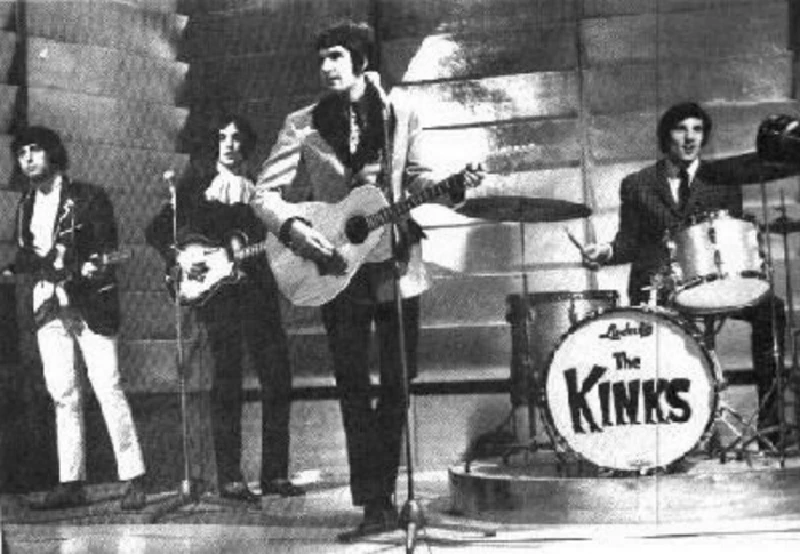
intro
The Kinks have just re-released their first three albums, 'The Kinks', 'Kinda Kinks' and 'The Kinks Kontroversy', in deluxe editions. Richard Lewis examines each of their three albums and their lasting legacy
Like the Rolling Stones, the Kinks’ catalogue has undergone many re-isssues and redux editions over the course of their career. The latest series, coming after re-releases in 1998 and 2004, the deluxe editions are (reasonably) likely to be the final word on the band’s original albums and come crammed with an additional disc of extras. The re-issues also give American fans to hear the albums as nature intended, as like all British Invasion bands, the original US editions were badly mangled. With B-sides included, running orders fudged, singles substituted and tracks gone walkabout, American albums were changed primarily in order to shortchange listeners Stateside into buying more albums than they had to, as the running times were inevitably shorter than the British originals. Whilst the Kinks are justly revered for their superlative run of groundbreaking 45s from 1964 to 1970, their early LPs, showing their gradual development into one of the most distinctive and influential bands to hail from British shores, more than warrant a listen. The opening troika of long players, beginning with the rough-and-ready R n’ B of their debut, the more refined follow up and the flowering of Ray Davies’ songwriting talent on the third demonstrates how quickly the Kinks’ leader found his feet. Established by Ray and his younger bother Dave with the addition of Pete Quaife as bass player, the band were completed by jazz drummer Mick Avory, who had almost become drummer for the Rolling Stones. The two youngest of eight children, the Davies’ formative years informed their musical tastes, the jazz and music-hall tunes the brothers’ heard around the family piano coming to the fore in their 1966-68 output. The band’s parallel career as a singles act par excellence runs counter to their albums, where due to UK chart protocol, many of the tracks weren’t included. The extras on the second discs of the reissue series seeks to redress this, as it gives the listener chance to hear what the band released in one year as a whole. In view of a band who many regard along with the Who as having invented punk over ten years too early, courtesy of the additional disc, the epochal ‘All Day and All of the Night’ now also appears on the rough-hewn rock n’ roll of eponymous debut, 'The Kinks', originally released in October 1964. The Chuck Berry covers (de rigor for any sixties band worth their salt) ‘Beautiful Delilah’ and ‘Too Much Monkey Business’, whilst not improving on the originals, have their own almost neo-skiffle imprint. Indeed ‘Beautiful Delilah’ appears to have been listened to by the Coral several times. Ray Davies’ original ‘So Mystifying’ has the fingerprints of the Stones’ Bobby Womack cover ‘It’s All Over Now’ conspicuously smudged onto it. Listening again to the Kinks’ debut, it is striking how quickly Ray Davies’ songwriting developed from the rough-hewn R n’ B of the Kinks early material onto the sophistication of ‘Waterloo Sunset’ less than three years later. A facet of the band’s sound that was also to change over the ensuing years was Ray Davies’ promotion to lead vocalist, as on these early cuts, his brother Dave’s lead singing is far more in evidence. With many of the tracks built around simple but indelible blues riffs and ascending chord ramps, plenty of blues harp wailing like trains in the night feature, an instrument that was to drop quickly from the band’s sound. The presence of ‘You Really Got Me’ at the end of what would have been side one toughens up Davies’ formative influences into something tangibly original. Conveying adolescent frustration in its sonic rawness, replete with frenetic Jimmy Page guitar solo, almost forty years on with seventeen year old Dave Davies’ slashed speaker cone well to the fore, the track still has one of the best guitar sounds ever captured. Bo Diddley cover ‘Cadillac’ pays homage to a treasured influence, a man responsible for firing up many British musicians’ imagination. An early indication of Davies’ maturity as a songwriter, ‘Stop Your Sobbing’, later covered by the Pretenders, pushes the singers’ natural voice forwards in the mix. Still heavily influenced by many of the band’s US idols, with much of the vocal duties divided between both Davies’ brothers, the gradual emergence of Ray’s voice in his songs coincided with the snowballing quality of his songwriting. Arguably nearest to the Stones in their earthy re-appropriation of Chicago blues, R n’ B and early rock n’ roll, it says much of Davies’ skills that, within a few years during the Stones’ brief period as English pop conceptualists, on 1966’s Between the Buttons' Mick and Keith began drawing inspiration from him. If the Kinks’ role in creating punk in the UK is widely accepted yet still debated in some quarters, their influence on the US garage rock scene is undeniable. Whilst Brian Jones may have the most imitated haircut amongst American musicians in the mid sixties, the Kinks’ persuasive, percussive rock provided the greatest musical inspiration. This primal urge is much in evidence on follow-up album, 'Kinda Kinks', originally released in March 1965. Largely dispensing with the cover versions (there are only two present,) the LP refines the rough and ready rock of their debut. Overlooked gem ‘Nothin’ in the World Can Stop Me Worryin’ ‘Bout That Girl,’ concerning Davies’ paranoia that his first girlfriend was cheating on him, is counterbalanced by near-misogynist blues cover ‘Naggin’ Woman.’ Again helmed by American producer Shel Talmy, Ray Davies was scathing about the album’s production, feeling that it was rushed, and that Talmy had tried too hard to accentuate the group’s rough edges. Recorded (and released!) in a two-week stint following an exhausting Asian tour by the group, the fact it hangs together as well as it does speaks volumes for their live skills in the studio. The resigned excellence of ‘Tired of Waiting of You,’ dipping into its perfectly constructed bridge, building to a crescendo back into the second chorus is a perfectly realized two and a half minute pop masterpiece. ‘So Long,’ built around a wistful acoustic arpeggio, gentle percussion and harmony vocals, provides an unplugged counterpoint that was to be explored more fully on the following album. Elsewhere, ‘Something Better Beginning,’ constructed around chiming semi-acoustic guitars, shadowy reverb and deep-pile harmonies is the nearest the band came to the Spector Sound, the track evoking images of the Shirelles and the Ronettes. November 1965’s 'The Kink Kontroversy', like the Beatles’ 'Rubber Sou'l issued the same month found the Muswell hillbillies at a transitional stage in their career. A mocking reference to the bad press that had accompanied the band following onstage bust-ups, rioting audiences and all round notoriety on European tours, the group found themselves on the receiving end of a ban that prevented them from touring the United States until the end of the decade. Bolstered by the addition of session ace Nicky Hopkins on piano, a presence on records by every major band of the sixties, the album signals Ray Davies’ growing consciousness of Englishness. Ian MacDonald in 'Revolution in the Head' posited the theory that the Kinks’ enforced home exile was a key development in their career, contributing greatly to their sound, reawakening memories of the music they had heard in their youth. Tracing the band’s development from a group in thrall to the American sounds of their early material through to their discovery of the rich vein of English styles that permeated throughout their best work in 1965-1968, the group’s imposed stay in Blighty does indeed have appeared to influenced this trend, eventually giving rise to Ray Davies’ accolade of becoming the ‘Quintessential English songwriter’. One of the band’s strongest LPs and the last Kinks album to reach the Top Ten in Britain at number nine, 'Kontroversy' sees Ray Davies’ burgeoning interest in more reflective songwriting, as ‘Where Have All the Good Times Gone’ superbly demonstrates. Largely moving away from their early aggressive, speed-influenced sound, the LP points the way towards their masterpiece 'The Village Green Preservation Society' two years later. That said, opening cut ‘Milk Cow Blues’, featuring a malevolent Dave Davies guitar sound buzzing like a swarm of angry hornets proves that they weren’t quite ready to move of from the trebly aggression of their early work just yet. Covered by the Chocolate Watchband, one of the many underground acts found on the legendary 'Nuggets' compilation of US garage bands, the track also is highly likely to be a favourite of Jack White’s. The bludgeoning riff of ‘Till the End of the Day' benefits from the clearer production brought to bear on the LP, whilst ‘Ring the Bells,’ dancing arpeggio and close harmonies acts as a complete contrast in showing how their new, mellower approach reaped dividends. ‘The World Keeps Going Round’, constructed around spare guitar and piano chords with its foot dragging tempo and hazy disregard for the outside world predicts the rise of psychedelia, as does under-rated gem ‘You Can’t Win,’ containing a stinging guitar line by Dave, which the same omnipotent feeling. he additional disc includes ‘Dedicated Follower of Fashion,’ an unmatched description of the ‘Young Meteors’ of Swinging London, describing the dandies flitting around Carnaby St with a satirical yet affectionate eye. Whilst the Kinks were yet to reach their peak, their early albums give plenty of indication of Ray Davies’ prodigious talent beyond straight-up rock n’ roll and R n’ B standards. The later reissues from 1966 onwards will surely yield greater treasures, yet these early, embryonic albums stand as ample proof of the Kinks’ enduring status as one of the greatest bands to ever emerge from Britain.
Band Links:-
https://en.wikipedia.org/wiki/The_Kinkshttps://www.facebook.com/TheKinksOfficial
http://www.thekinks.info/
https://twitter.com/TheKinks
https://www.youtube.com/user/TheKinksOfficial
Picture Gallery:-
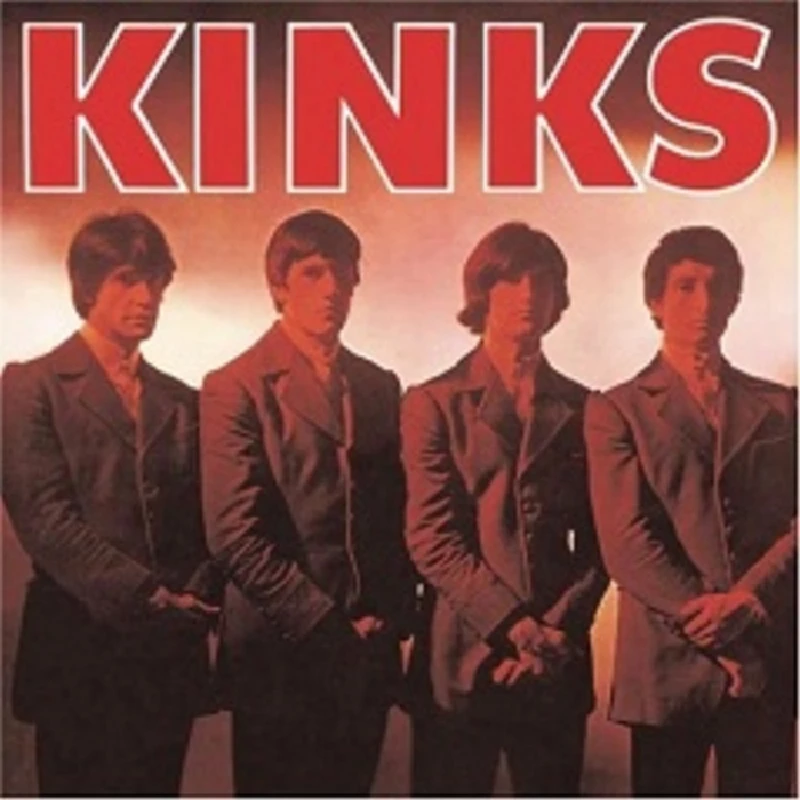
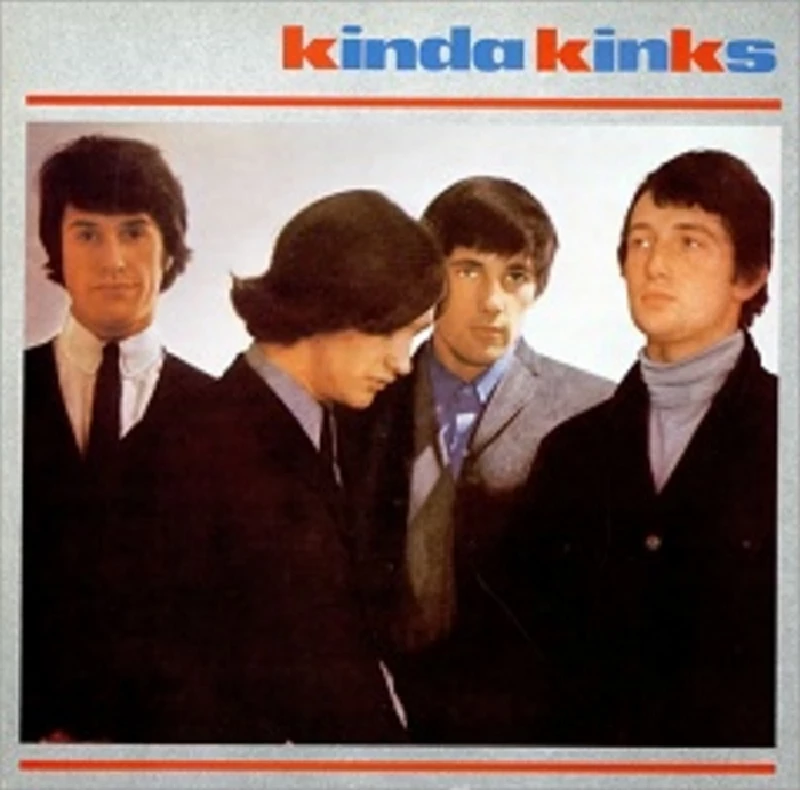
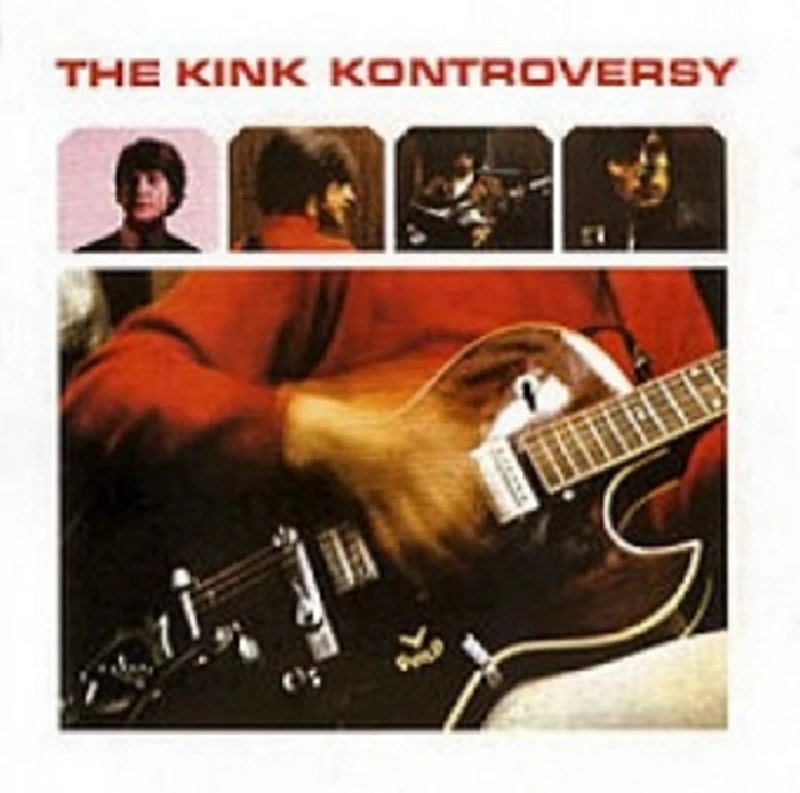
interviews |
|
Interview With Mick Avory (2011) |
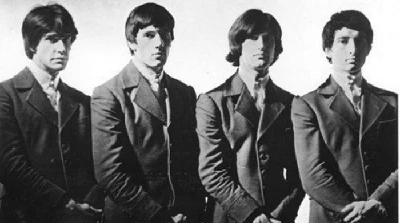
|
| With their first three albums having just been re-released in expanded double CD editions, Mick Avory, the drummer with the Kinks from the early 1960's until 1984, speaks about his years with the band and their continuing influence |
features |
|
Ray Davies - Americana; The Kinks. the Road and the Perfect Riff (2014) |
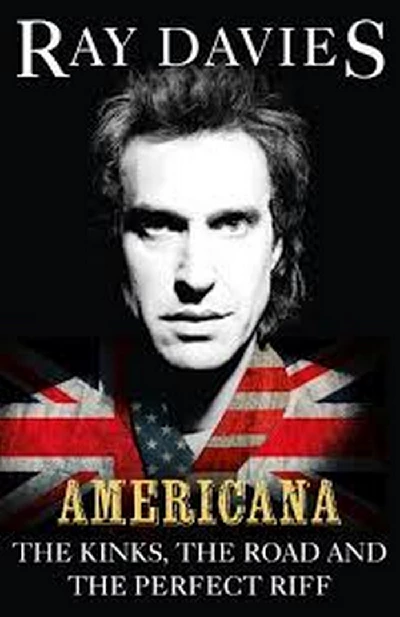
|
| In her book column 'Raging Pages' Lisa Torem reflects on the Kinks' Ray Davies' second book of autobiography, 'Americana: The Kinks, the Road and the Perfect Riff', which is about his love and hate relationship with the United States |
reviews |
|
Kinks at the BBC (2012) |
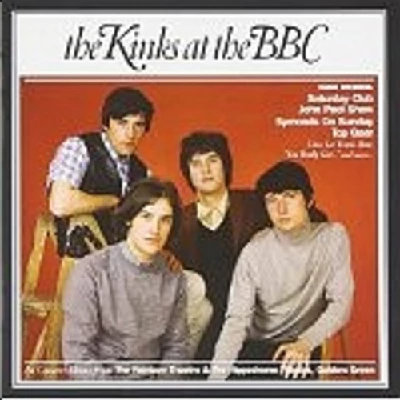
|
| Essential six CD box set of recordings made at the BBC by the Kinks during their thirty year history |
most viewed articles
current edition
Spear Of Destiny - InterviewRobert Forster - Interview
Fiona Hutchings - Interview
When Rivers Meet - Waterfront, Norwich, 29/5/2025
Carl Ewens - David Bowie 1964 to 1982 On Track: Every Album, Every Song
Brian Wilson - Ten Songs That Made Me Love...
Chris Wade - Interview
Pistol Daisys - Waterfront, Norwich, 29/5/2025
Credits - ARC, Liverpool, 17/5.2025
Gary Numan - Berserker
previous editions
Heavenly - P.U.N.K. Girl EPBoomtown Rats - Ten Songs That Made Me Love....
Barrie Barlow - Interview
Manic Street Preachers - (Gig of a Lifetime) Millennium Stadium, Cardiff, December 1999
Oasis - Oasis, Earl's Court, London, 1995
Dwina Gibb - Interview
Pixies - Ten Songs That Made Me Love...
David Paton - Magic: The David Paton Story
Chuck Prophet - Ten Songs That Made Me Love...
Sound - Interview with Bi Marshall Part 1
most viewed reviews
current edition
Peter Doolan - I Am a Tree Rooted to the Spot and a Snake Moves Around Me,in a CircleGarbage - Let All That We Imagine Be The Light
Vinny Peculiar - Things Too Long Left Unsaid
Little Simz - Lotus
John McKay - Sixes and #Sevens
Suzanne Vega - Flying With Angels
HAIM - I Quit
Morcheeba - Escape The Chaos
Vultures - Liz Kershaw Session 16.06.88
Billy Nomates - Metalhorse
Pennyblackmusic Regular Contributors
Adrian Janes
Amanda J. Window
Andrew Twambley
Anthony Dhanendran
Benjamin Howarth
Cila Warncke
Daniel Cressey
Darren Aston
Dastardly
Dave Goodwin
Denzil Watson
Dominic B. Simpson
Eoghan Lyng
Fiona Hutchings
Harry Sherriff
Helen Tipping
Jamie Rowland
John Clarkson
Julie Cruickshank
Kimberly Bright
Lisa Torem
Maarten Schiethart